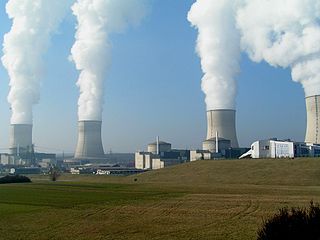A Conversation on Nuclear Energy
I wrote to a friend yesterday that I really don’t know whom or what to trust when it comes to evaluating the safety of nuclear energy. Obviously, there is a ton of content that suggests a cover-up on Fukushima, i.e., that the damage is far worse that officials admit. There are also reports to the effect that the danger to human health are over-exaggerated.
He writes back:
I know how you feel. I have many friends who are aging new agers who are absolutely convinced there is some sort of massive cover up regarding Fukushima and would be horrified to discover I am a supporter of nuclear energy! I would have to say that with the hysteria surrounding nuclear going all the way back to the movie The China Syndrome I tend to think that nuclear isn’t nearly as scary as we think. It’s interesting to note that low level radiation can actually be good for you and is used in healing modalities. Cities like Denver that have higher than normal levels of background radiation actually have lower levels of cancer.
For an interesting take on why nuclear is so costly, check out www.atomicengines.com/Atomic_Socialism.html. The article is about 15 years old but it makes for interesting reading.
I respond:
Yes, that is interesting, though I’m not sure I buy it. There is no doubt that it would be interesting to rewind the clock to the 1940s, and come forward in a world in which nuclear power was developed in the private sector, without the “burden” of government regulation. Frankly, I don’t think we’d be alive to be having this conversation, but I could be wrong. We’ll never know. Here’s my counter-position.


I don’t have any firsthand knowledge of Fukushima beyond what is out there in plublic, but I can provide you with something useful…..
If you would like an easy-to-read look at daily life in a US nuclear plant, and what a bad day might be like, my novel “Rad Decision” tells the story in a way that allows a lay person to follow along and understand what the real problems were. The book is free online (no ads or sponsors) – just Google the title or go to my website. I’ve been working away at atomic plants for some years now and can provide a rare insider’s viewpoint of both the good and the bad. [There are plenty of both, as with any energy source. } As a bonus, the plant design and bad day resemble Fukushima. Plenty of reader reviews at the homepage or Amazon.
It is certainly true that the information we are getting about Fukushima is very conflicting. Getting an accurate understanding of the situation is just about impossible. However, I have noticed that whenever a trivial amount of tritium is released from a nuclear plant, there are claims that it will cause X number of cases of cancer, even when the actual amount of radiation exposure seems to be a tiny fraction of the natural background level of radiation. I’ve also read claims that the area around Three Mile Island is completely dead and that no vegetation can grow there, even though photographs taken since the partial melt down show those claims to be false.
There seems to be statistical information that indicates that people living in areas with high natural background radiation suffer no ill effects from it.
Unfortunately, there are people on both sides of the issue who seem unconcerned with accuracy and truth and who will make all sorts of claims to support their position.